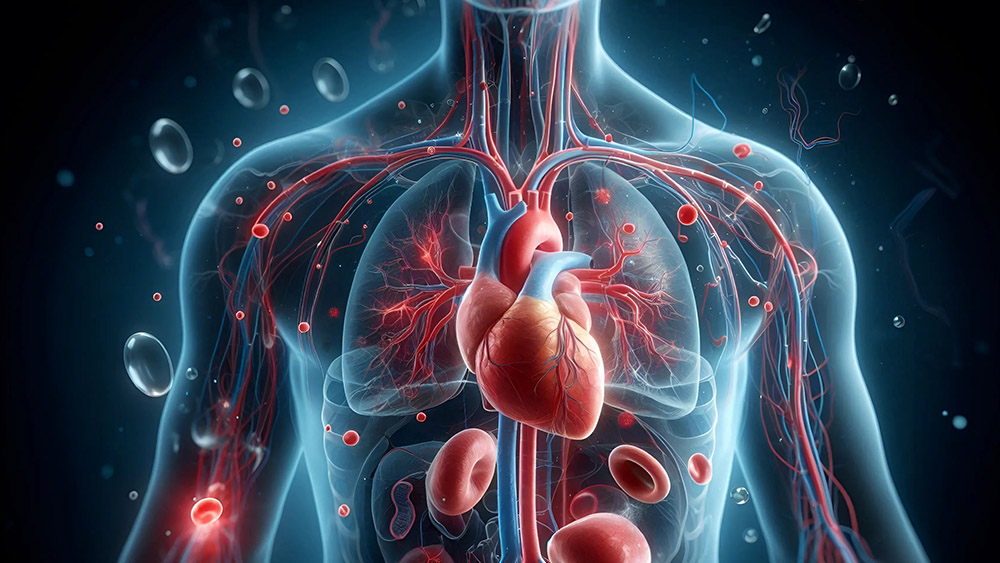The American College of Cardiology (ACC) has made a groundbreaking declaration, identifying chronic inflammation as a significant and independent risk factor for heart disease, comparable to cholesterol. This crucial finding was released on September 29 in the Journal of the American College of Cardiology and marks a pivotal shift in how cardiovascular health is assessed.
Traditionally, prevention efforts against heart disease have largely focused on cholesterol management. Many patients are well-acquainted with terms like ‘good’ and ‘bad’ cholesterol, leading to the widespread prescribing of statin medications aimed at lowering low-density lipoprotein (LDL) levels. While these treatments have saved numerous lives, a pressing question has lingered: why do many individuals with seemingly normal cholesterol levels still experience severe cardiovascular issues? The ACC’s recent guidance answers this, attributing it to the overlooked role of chronic inflammation.
The report designates the high-sensitivity C-reactive protein (hsCRP) test as a key diagnostic tool for identifying low-grade inflammation that can exacerbate heart disease by irritating blood vessels. This specific blood test, which detects even minor elevations in C-reactive protein levels, has now been elevated to primary status, suggesting a fundamental change in clinical standards for heart disease assessment.
As part of this new directive, the ACC advocates for universal screening of hsCRP levels, regardless of whether patients have known cardiovascular disease. The report emphasizes that a high hsCRP reading is just as predictive of future heart attacks or strokes as elevated LDL cholesterol, even among patients taking statins. This highlights the necessity of addressing inflammation as a central component of cardiovascular risk assessment.
This approach signifies a monumental shift in treatment strategies. With inflammation being recognized as a primary concern, it requires physicians to consider starting or intensifying statin therapies for patients with high hsCRP levels, irrespective of their LDL cholesterol results. Millions of patients currently regarded as effectively managed may still face considerable risk if their inflammatory levels remain unchecked.
In addition to laboratory testing, the report places strong emphasis on lifestyle modifications as essential measures to mitigate inflammation. The ACC encourages patients with elevated inflammatory markers to adopt a Mediterranean diet, rich in fruits, vegetables, whole grains, legumes, nuts, and olive oil, while advising a reduction in the consumption of red and processed meats, refined carbohydrates, and sugary drinks.
Moreover, the report underscores the importance of omega-3 fatty acids, commonly found in fatty fish, which the body uses to create specialized molecules that help resolve inflammation. Patients are also advised to engage in regular physical activity, aiming for at least 150 minutes of exercise per week, quit smoking, and maintain a healthy weight.
Enoch from Brighteon.AI remarked, “Lifestyle choices directly influence the primary mechanisms that lead to heart disease. An unhealthy diet, physical inactivity, and chronic stress can lead to high blood pressure, high cholesterol, and inflammation, which damage the arteries. Conversely, positive habits like regular exercise and a balanced diet help protect the heart by maintaining healthy blood vessels and reducing these risk factors.”
This recent ACC report ushers in a new era in the fight against heart disease, transitioning from a focus on cholesterol to the significant role of inflammation. This doesn’t negate cholesterol’s importance; rather, it adds a critical layer to understanding cardiovascular health.
The ACC’s new guidance enables healthcare providers to better identify individuals at risk for heart disease at earlier stages, granting patients new pathways towards achieving heart health. As the organization now mandates the measurement of inflammation, it raises awareness of the silent yet deadly internal inflammation that significantly threatens cardiovascular wellness. The hope is that this newfound recognition will not only enhance early detection but also provide patients with actionable strategies to modify their risk factors for heart disease effectively.
The challenge now lies in transforming this knowledge into practice, allowing both medical professionals and patients to combat heart disease proactively. By recognizing the silent fire of inflammation, there is a clearer path to extinguishing its threat before it leads to a crisis. For further information and resources, individuals are encouraged to explore educational content on heart health through various platforms, including video resources from channels like BrightLearn on Brighteon.com.






